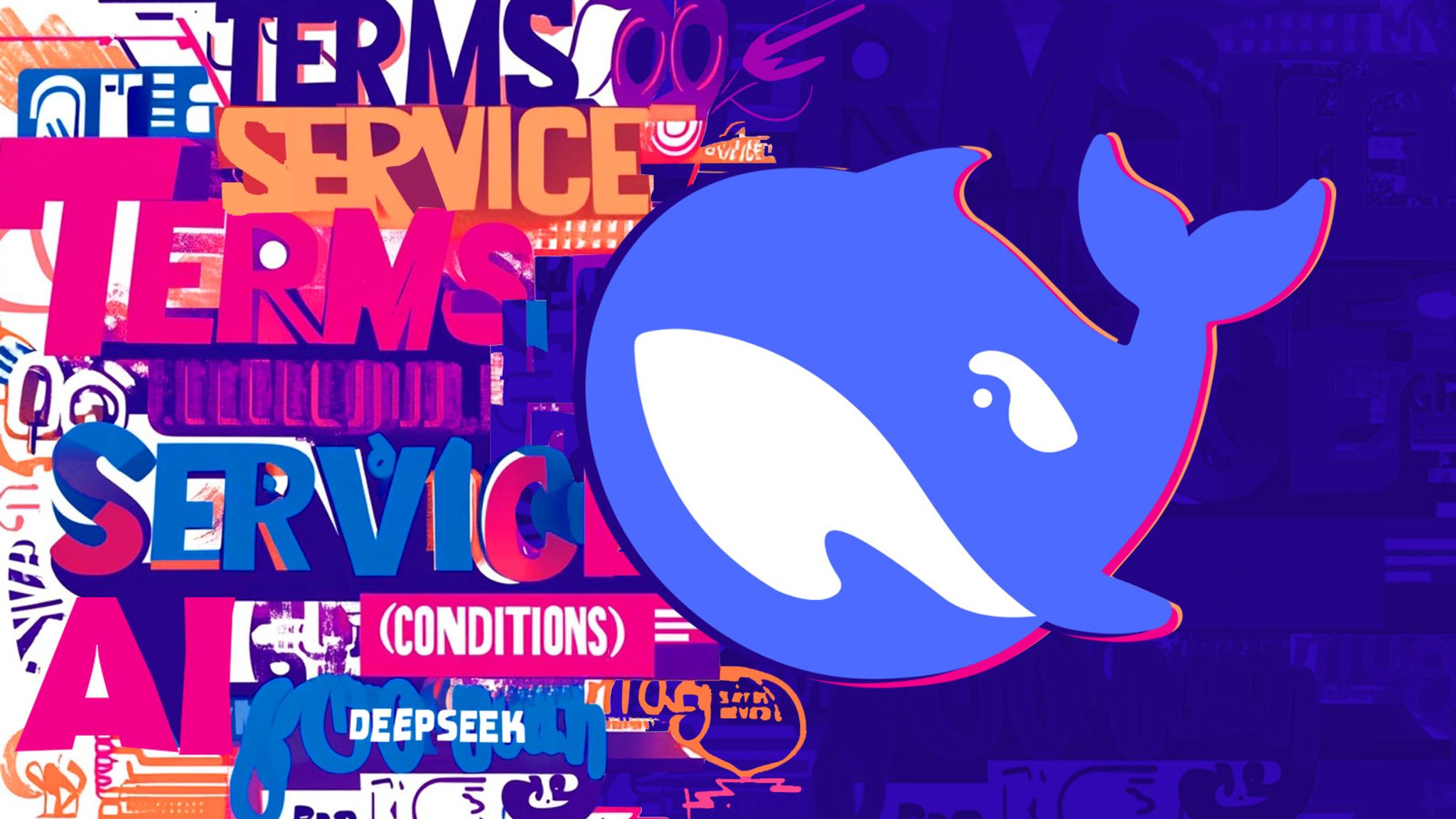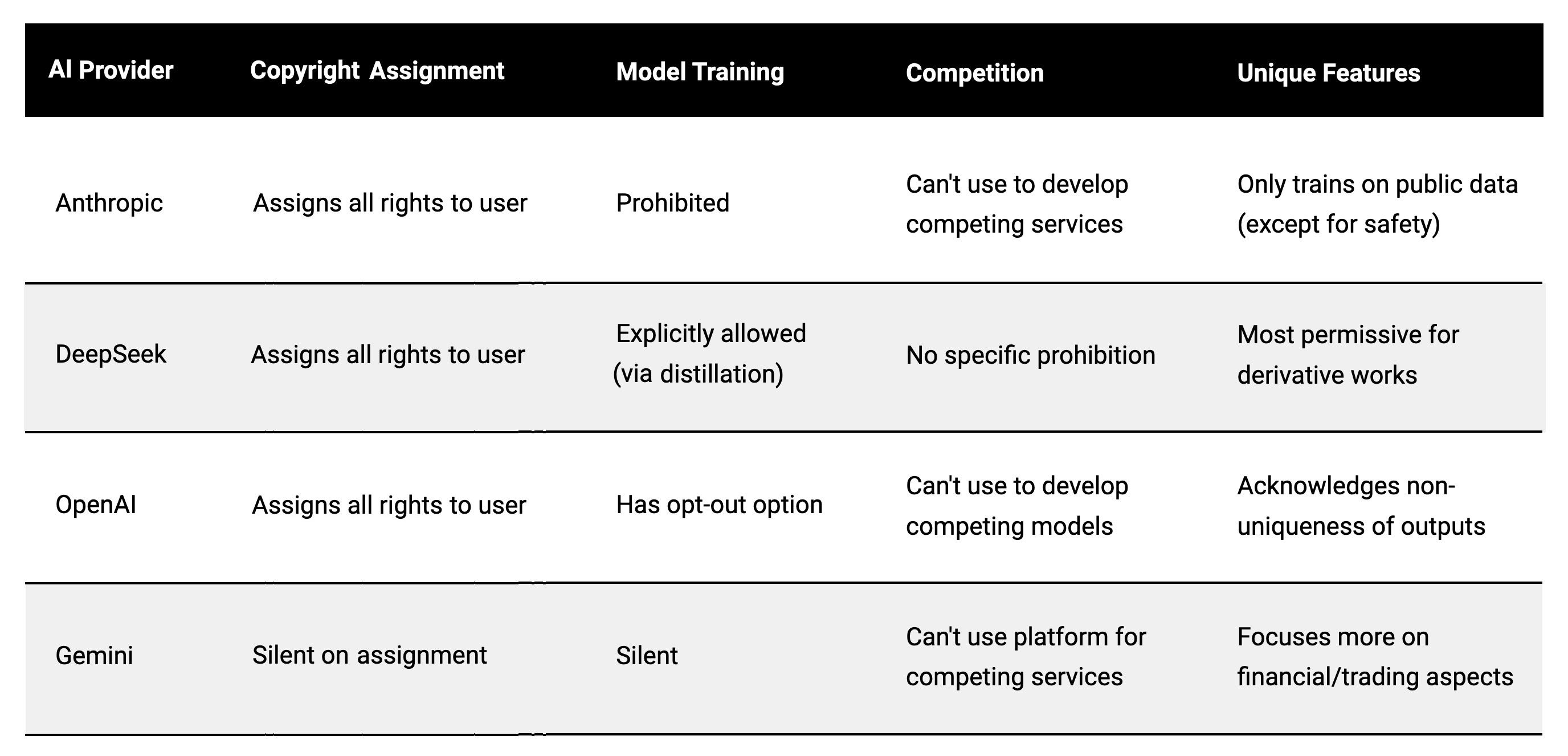Trust and Verify: When Internet Drama Meets AI Reality

Most people don't thoroughly review any of their software's terms of service, and AI tools are no exception. But my recent mishap with DeepSeek reminded me how important it is to do my own homework before spreading narratives. Here are a few of my observations to help you avoid the pitfalls.
Tom Cranstoun, “The AEM Guy,” is the principal consultant at Digital Domain Technologies Limited and a CMS Critic contributor.
I have a confession to make: Recently, I read an article about DeepSeek's "scary" terms of service and immediately shared it with my colleagues.
I was enjoying my coffee and browsing Medium when I came across this alarming headline, warning against using DeepSeek-v3. The assertions were based on the "fine print" in the terms and conditions.
“Have you seen this?” I implored. “DeepSeek's terms are TERRIFYING!”
Everyone knows DeepSeek, the latest darling in the AI war. The Chinese startup has created quite a stir, offering open source models that are competitive with OpenAI. DeepSeek is also cheaper to use, raising questions about the billions being invested in data centers by leading tech companies.
It wasn't until someone said, "Have you actually read their terms of service?" that I felt a twinge of embarrassment.
No, I hadn't. I had only read a convincing headline and a well-written Medium article, then helped amplify it without checking the source material.
Oops.
I trusted, but didn't verify – and became part of the problem, spreading misinformation through the viral grapevine of tech gossip. Having fumbled in my homework, I was determined to thoroughly review DeepSeek's terms and see for myself what made them so scary.
As an AI practitioner and avid researcher, I have a personal stake in this. I use DeepSeek because it's significantly more affordable than Anthropic, a competing model that's been around for some time and is considered one of the best. Anthropic has also received quite a bit of investment from AWS ($4 billion to be exact).
How much less expensive is DeepSeek? Here's an example: I spent $500 on Anthropic in December but only $20 on Deepseek in January. You can see why this is so disruptive.
Several hours and four lengthy legal documents later, I had an enlightening realization: Things aren't always what they seem on the internet (shocking, I know!)
Let's break down what I found with a handy comparison:

The Reality Check
The Medium article painted DeepSeek's terms as uniquely threatening, but here's the thing – when you actually read all these terms side by side, they're remarkably similar. It's like they're all following the same cookbook but adding their own special sauce.
The Plot Twist
What's really interesting is that DeepSeek, the supposed “villain” in our story, actually has some of the most permissive terms. They explicitly allow you to use their outputs for training other models (through distillation) – something others either prohibit or stay quiet about.
The Lessons Learned
- Headlines can be deceiving: That scary-sounding article? Sure, it got engagement. But it missed the bigger picture, and I helped spread it without checking.
- Context is everything: What sounds alarming in isolation ("You're responsible for outputs!") turns out to be standard practice across the industry. If I'd known this context earlier, I wouldn't have said what I said.
- Read the “boring stuff” too: Yes, terms of service are about as exciting as watching paint dry, but they tell the real story. So don't skip anything.
The Happy Ending
Here's the warming part: These AI companies are actually pretty straightforward about what they're doing. They're not trying to trick you; they're just trying to run their businesses while protecting themselves legally. Standard stuff, really.
Sure, the terms are complex (hello, lawyer-speak!), but they're generally upfront about:
- What rights you have to the outputs
- How they can use your data
- What you can and can't do with their services
The Trust-But-Verify Takeaway
In this warp-speed era of AI, we're all moving faster than we should. For CMS vendors, that's been evident in the widespread adoption of generative AI across their content management features and workflows.
In the wake of my dramatic “mishap,” this feels like an opportune moment to pause and reflect on the topic of trust, and how vital it is to our customers – and ourselves.
Can you trust these AI services? Generally speaking, yes.
Should you verify claims about them? Absolutely! When you do, you'll often find that reality is less dramatic and more reasonable than social media would have you believe.
Remember folks, trust is great, but verification is better. And sometimes, when you verify, you find out things are actually better than the scary headlines suggest. Now isn't that a nice plot twist?
P.S. Always read the terms of service. Or at least find someone who has read them and isn't trying to scare you with clickbait. And please, don't be like me, spreading tech gossip before verifying it. Just saying… 😉
Want to use AI services confidently? Do your homework, understand the terms, and don't let scary headlines (or well-meaning but uninformed colleagues like me) drive your decisions. These platforms are generally trustworthy – but always, always verify.
After all, in the words of a wise person (probably): "Trust is good, verification is better, and actually reading the terms of service makes you a rare superhero in the age of clickbait."
Upcoming Events

CMS Summit 25
May 13-14, 2025 – Frankfurt, Germany
Don't miss the first European edition of our prestigious international conference dedicated to the global content management community! CMS Summit 25 will bring together top-notch speakers, our renowned learning format, and engaging social events. Hear from leading practitioners like Deutsche Bahn, Dr. Oetker, and more – and join customers, agencies, and CMS vendors as we discuss current trends and what's ahead for the content and digital experience fields. Connect and network at the only vendor-neutral, in-person conference focused on CMS. Space is limited for this exclusive event, so book your seats today.

CMS Connect 25
August 5-6, 2025 – Montreal, Canada
We are delighted to present the second annual summer edition of our signature global conference dedicated to the content management community! CMS Connect will be held again in beautiful Montreal, Canada, and feature a unique blend of masterclasses, insightful talks, interactive discussions, impactful learning sessions, and authentic networking opportunities. Join vendors, agencies, and customers from across our industry as we engage and collaborate around the future of content management – and hear from the top thought leaders at the only vendor-neutral, in-person conference exclusively focused on CMS. Space is limited for this event, so book your seats today.